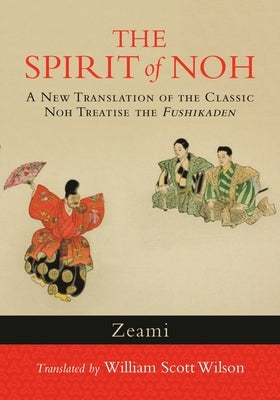Description
The Japanese dramatic art of Noh has a rich six-hundred-year history and has had a huge influence on Japanese culture and such Western artists as Ezra Pound and William Butler Yeats. The actor and playwright Zeami (1363-1443) is the most celebrated figure in the history of Noh, with his numerous outstanding plays and his treatises outlining his theories on the art. These treatises were originally secret teachings that were later coveted by the highest ranks of the samurai class and first became available to the general public only in the twentieth century. William Scott Wilson, acclaimed translator of samurai and Asian classics, has translated the Fushikaden, the best known of these treatises, which provides practical instruction for actors, gives valuable teachings on the aesthetics and spiritual culture of Japan, and offers a philosophical outlook on life. Along with the Fushikaden, Wilson includes a comprehensive introduction describing the historical background and philosophy of Noh, as well as a new translation of one of Zeami's most moving plays, Atsumori.
Author: Zeami
Publisher: Shambhala
Published: 05/14/2013
Pages: 184
Binding Type: Paperback
Weight: 0.45lbs
Size: 7.60h x 5.40w x 0.60d
ISBN13: 9781590309940
ISBN10: 1590309944
BISAC Categories:
- Philosophy | Eastern
- Drama | Asian | Japanese
Author: Zeami
Publisher: Shambhala
Published: 05/14/2013
Pages: 184
Binding Type: Paperback
Weight: 0.45lbs
Size: 7.60h x 5.40w x 0.60d
ISBN13: 9781590309940
ISBN10: 1590309944
BISAC Categories:
- Philosophy | Eastern
- Drama | Asian | Japanese
About the Author
Zeami (1363-1443) is considered the most important playwright, actor, and theorist in the history of Japanese Noh theatre. Along with his father, Kan'ami, he revolutionized Noh, turning it into a nuanced art form that greatly influenced many aspects of Japanese art and culture. He was a prolific writer, and his plays make up a significant part of the Noh repertoire.

